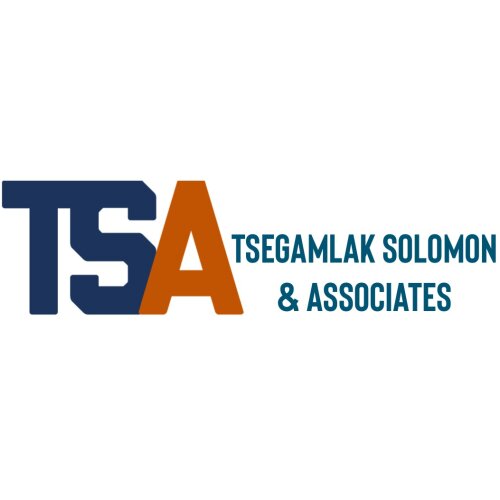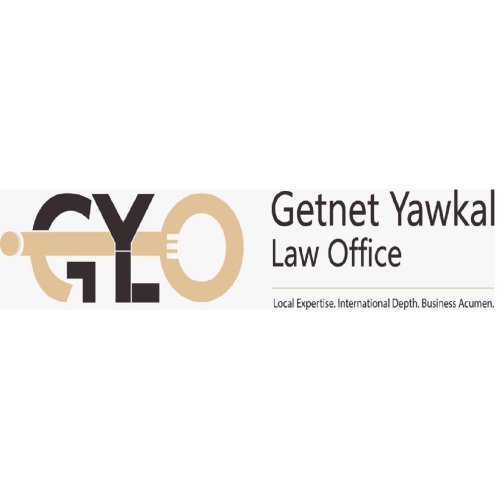Best Project Finance Lawyers in Addis Ababa
Share your needs with us, get contacted by law firms.
Free. Takes 2 min.
List of the best lawyers in Addis Ababa, Ethiopia
About Project Finance Law in Addis Ababa, Ethiopia
Project finance is a specialized area of law and finance focusing on the funding of large-scale infrastructure and industrial projects. In Addis Ababa, Ethiopia, project finance has become increasingly relevant with the growth of sectors such as energy, transport, manufacturing, and telecommunications. Unlike traditional forms of lending, project finance relies on the projected cash flows of the project itself rather than solely on the balance sheets of project sponsors. This approach allows for the structuring of complex financial models and risk allocation mechanisms that often involve multiple parties such as lenders, sponsors, contractors, and government entities.
Why You May Need a Lawyer
Engaging an experienced project finance lawyer in Addis Ababa is critical for various reasons. These professionals help ensure full legal compliance, identify potential risks, and structure the financing to benefit all stakeholders. Common scenarios where legal help is needed include:
- Negotiating and drafting project and finance agreements
- Advising on regulatory requirements for infrastructure projects
- Securing approvals from governmental bodies
- Conducting due diligence on local land use, environmental, and tax laws
- Resolving disputes between project participants
- Navigating complex public-private partnership (PPP) frameworks
- Facilitating cross-border investments and foreign exchange matters
Legal expertise helps prevent costly mistakes and ensures that the project can achieve financial close and operate smoothly.
Local Laws Overview
Project finance in Ethiopia is governed by a mix of different legal frameworks, including banking regulation, investment laws, public-private partnership legislation, and sector-specific rules. Key legal considerations include:
- Public-Private Partnership Proclamation: This law regulates how the government and private sector cooperate on infrastructure projects, outlining bidding, contractual, and approval procedures.
- Investment Proclamation: Governs both foreign and domestic investment, including capital repatriation, tax incentives, and sectors open to private funding.
- Banking and Foreign Exchange Regulation: Project finance structures must comply with rules on foreign currency loans, repatriation of profits, and account opening procedures in foreign and local banks.
- Land Use and Environmental Laws: Access to land is governed by leasehold systems, while environmental approvals may be required for certain projects.
- Contract Law and Dispute Resolution: Standard contract law principles under the Ethiopian Civil Code apply, and disputes can often be resolved through local courts or arbitration.
Navigating these legal requirements is essential to avoid delays and legal challenges.
Frequently Asked Questions
What is project finance?
Project finance is a method of funding large-scale projects where the project’s future cash flows are used as repayment security, rather than the assets or creditworthiness of project sponsors.
What types of projects typically use project finance in Addis Ababa?
Common sectors include energy (hydropower, renewable energy), transportation (roads, railways), manufacturing, telecommunications, and water infrastructure.
Can foreign investors participate in project finance in Ethiopia?
Yes, Ethiopia welcomes foreign investors in specific sectors, subject to investment proclamations and sector-specific restrictions. Legal advice is crucial to understand qualification and approval processes.
What approvals are required for project finance deals?
Approvals may be needed from the Ethiopian Investment Commission, Ministry of Finance, sector regulators, local environmental agencies, and sometimes parliament for large PPPs.
Are there tax incentives for project finance projects?
Certain projects, particularly those in priority sectors like energy and manufacturing, may benefit from tax incentives such as exemptions or reductions. These are governed by the investment laws.
What is a public-private partnership (PPP) and how is it related to project finance?
A PPP is a cooperative venture between public and private sectors for infrastructure or service delivery. PPPs often use project finance to fund their large capital requirements.
How are risks managed in project finance agreements?
Risks such as construction, operation, payment, and regulatory changes are allocated among stakeholders using detailed contracts, insurance, and sometimes government guarantees.
Is land ownership allowed for project sponsors?
Land in Ethiopia is publicly owned, but long-term leases can be arranged for private project sponsors. Legal professionals help secure and structure these leases.
What happens if there is a dispute during the project?
Disputes may be handled through negotiation, mediation, local courts, or arbitration, depending on the contracts and agreements in place.
How can profits or dividends be repatriated by foreign investors?
Repatriation is possible, subject to compliance with Ethiopian foreign exchange regulations and approval from the National Bank of Ethiopia.
Additional Resources
If you want to learn more about project finance in Addis Ababa, the following resources and organizations can provide valuable information or assistance:
- Ethiopian Investment Commission
- Ministry of Finance of Ethiopia
- Public-Private Partnerships Directorate under the Ministry of Finance
- National Bank of Ethiopia
- Addis Ababa Chamber of Commerce and Sectoral Associations
- Professional law firms specializing in project finance
- Multilateral development banks such as African Development Bank (AfDB) and World Bank
Next Steps
If you are considering project finance in Addis Ababa, it is crucial to seek early legal advice to understand requirements specific to your project. Start by identifying your project’s scope and sector, then consult with a reputable local law firm or legal professional with expertise in project finance. Be prepared to collect all relevant documents such as business plans, financial models, and proposed contracts. Lastly, schedule a meeting with the relevant governmental authority to ascertain required approvals. Taking these steps will significantly increase your chances of a successful, compliant, and financially viable project in Addis Ababa, Ethiopia.
Lawzana helps you find the best lawyers and law firms in Addis Ababa through a curated and pre-screened list of qualified legal professionals. Our platform offers rankings and detailed profiles of attorneys and law firms, allowing you to compare based on practice areas, including Project Finance, experience, and client feedback.
Each profile includes a description of the firm's areas of practice, client reviews, team members and partners, year of establishment, spoken languages, office locations, contact information, social media presence, and any published articles or resources. Most firms on our platform speak English and are experienced in both local and international legal matters.
Get a quote from top-rated law firms in Addis Ababa, Ethiopia — quickly, securely, and without unnecessary hassle.
Disclaimer:
The information provided on this page is for general informational purposes only and does not constitute legal advice. While we strive to ensure the accuracy and relevance of the content, legal information may change over time, and interpretations of the law can vary. You should always consult with a qualified legal professional for advice specific to your situation.
We disclaim all liability for actions taken or not taken based on the content of this page. If you believe any information is incorrect or outdated, please contact us, and we will review and update it where appropriate.

















